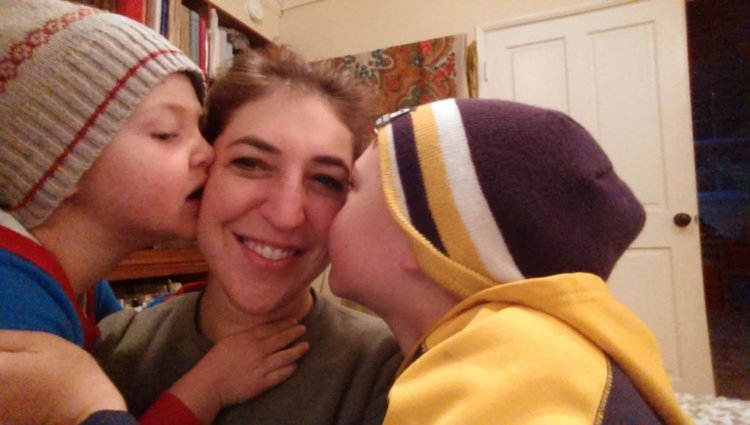
I recently read an article about parents trying to provide incentives for their children to do well on standardized tests in England. But I have a feeling this is something going on all over the world. It made me think about all of the rewards and punishments people use to parent children of all ages.
My ex and I decided to never parent with incentives. At all. No rewards. And also no punishments. So how did we manage to raise children who aren’t spoiled, crazy, reckless disrespectful animals? Well, we did it gently and deliberately, and we relied on other people parenting this way for support and also on communities online and offline that could provide ideas and additional help.
I know plenty of people will tell me their kid needs threats and rewards, and you know what? Maybe, but maybe not. We all do the parenting we can with the support and education and resources we have. A lot of our thinking that kids “need punishment” is actually culturally-driven, but only anecdotally-substantiated. Every child is different, and there is no one way to raise children, I’m sure of that. I am also certain that there are ways to build up the relationship you have with your child in a lot of ways that don’t involve rewards and incentives and their subsequent flip sides: punishment and threats.
People ask me a lot, “What about potty training?” when I talk about not using reward and punishment. While I know that a system of reward and punishment works with potty training, my ex and I practiced Elimination Communication with both of our sons rather than use diapers and then forcing them to stop (click here for more information on EC).
In my journey as a parent, I found many ways to motivate my boys to do things that didn’t involve incentives, reward, or punishment.
- I lighten up. Decide how important something really is. Every child learns manners eventually. Every stage passes. I read Your Four-Year-Old: Wild and Wonderful, and it was incredibly helpful every year in showing me that what I was facing in terms of discipline and pushing boundaries was NORMAL, and that there were constructive ways to get through those phases rather than yelling or threatening or punishing. I know it sounds easy, and it’s actually very hard. But learning about what buttons of yours get pushed is a great way to start to understand why you feel the need to react so strongly when your buttons get pushed. I have a huge “respect” button and if I get a hint that I’m not being respected, it’s like I’m “Anger” from the “Inside Out” movie. I have learned ways to dial that back and not make my issues into my kids’ issues. Yup. It’s hard work but it makes for a lot less yelling and freaking out on my part as a parent. Everyone is happier when we are all operating as our highest possible self. (For more on this, see Ilene Val-Essen’s book Bring Out the Best in Your Child and Your Self. It literally changed my life as a parent.)
- I don’t use threats. Do you like to be threatened? Kids don’t like it either and it’s even scarier and more uncomfortable for them because they are small and helpless. Even when they are making you crazy, they are doing their best to get their needs met. Period. If their needs aren’t met, they tell you in louder and more obnoxious ways. I learned this from Dr. Val-Esen’s book (see above) and from her Quality Parenting workshops and books. I especially don’t make empty threats. Empty threats are ones you don’t ever intend to act on but use to scare your kid into doing or not doing something.For example, how many times have you been at the park and heard a parent shout to their kid, “If you do that one more time we are leaving!” More often than not, the kid does whatever it is a dozen more times and they don’t leave. Here’s the deal: threats you don’t follow up on show kids you don’t mean it. Threats get ignored and you have to keep ratcheting up the ante to get yourself heard; they aren’t listening because you didn’t follow through. I, of course, have let my kids know from time to time that we would leave some event or activity if they continued some behavior, and you know what would happen if they did continue it? We left. It doesn’t matter how loud the tantrum is or how vehemently that small person expresses his dissatisfaction; they know if I say to stop something or we will leave, that I mean it. Problem mostly solved.
- I don’t use punishments. Punishments are a tough thing to imagine not using because we are taught to believe they work, but mostly they instill fear. I don’t want to parent by fear but I know it works for a lot of families. It doesn’t work for me and never will. This means I don’t hit or use time-outs or put anyone in their room. Ever. There are ways to control your temper and understand your child’s needs without punishment or hitting. Recent longitudinal research has shown definitively that hurting children hurts them and makes them prone to believing that hurting others is an option. If you are having problems controlling your anger, there are places to reach out to. (Here is a helpful online suggestion.) Punishments are not the only way to discipline your child. And consequences are absolutely used in our house. When my older son was 3, he threw a ball at me in anger. I said, “If you throw that ball at me again in anger, you will be showing me that you can not be trusted with balls right now and I am going to put the balls away for the rest of the day.” He threw it again. I calmly – not too entirely calmly, if we are being honest – gathered up the balls and put them away on top of the refrigerator. Boy, was he mad. He was mad for a good 5 minutes. Super mad. Then we distracted him and moved on. He got the balls back the next day. He never threw a ball at me again.
For me, the issue isn’t really incentives. It’s about a system of cooperation we set up with our children. Everything we do should be measured: does this build up the relationship or does it place space between us? Does this make us feel closer or farther apart?
Everyone gets to do their own thing in parenting, but for our family, this approach works. When my boys are older, I hope they are motivated by their desire to succeed and their desire to achieve, rather than by things they may get. Of course, the rules will shift, but overwhelmingly, “incentives” is just a fancy word for “rewards.” I hope that the most rewarding thing we strive for in our family will always be to continue building our relationships.
Let’s grok: Did your parents use threats or incentives when you were a child? What choices have you made to help create boundaries and expectations for the children in your lives?
Resources
For more information about parenting without threats, punishments, or harsh discipline:
- La Leche League International
- Holistic Moms Network
- Attachment Parenting International
- Adventures in Gentle Discipline is a terrific book and resource as well.




 Read More From Mayim
Read More From Mayim
Grok Nation Comment Policy
We welcome thoughtful, grokky comments—keep your negativity and spam to yourself. Please read our Comment Policy before commenting.